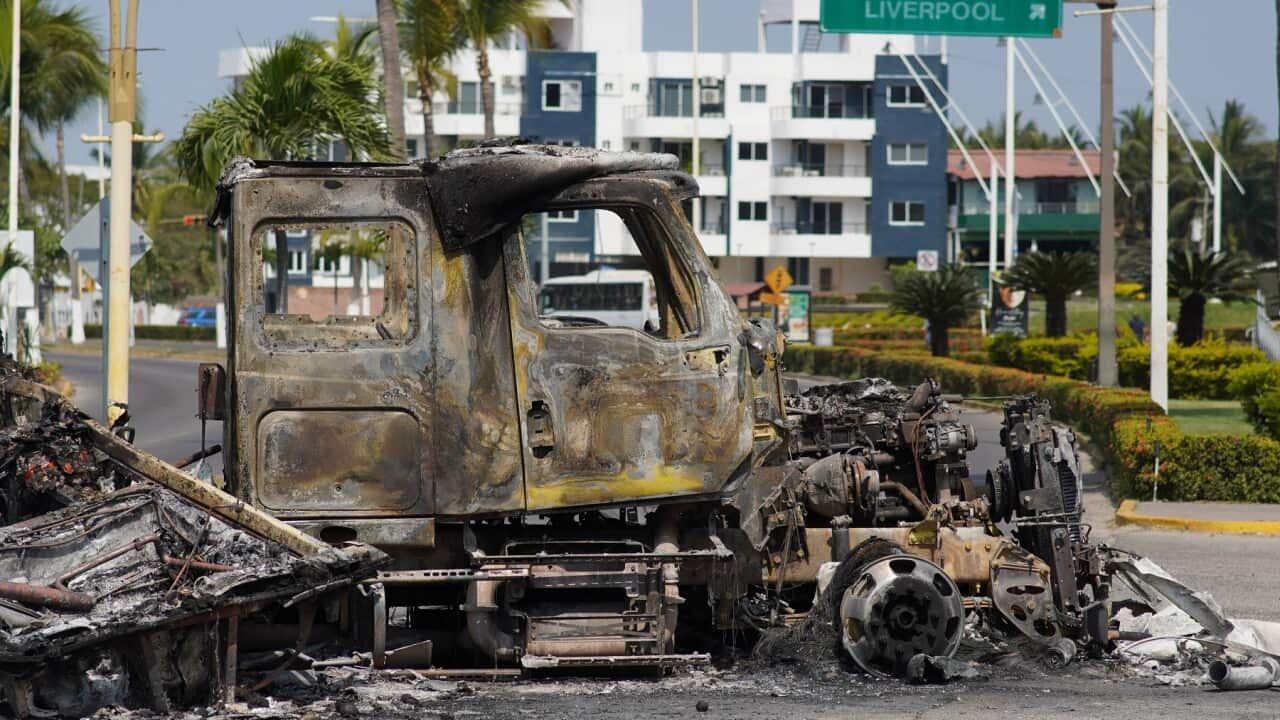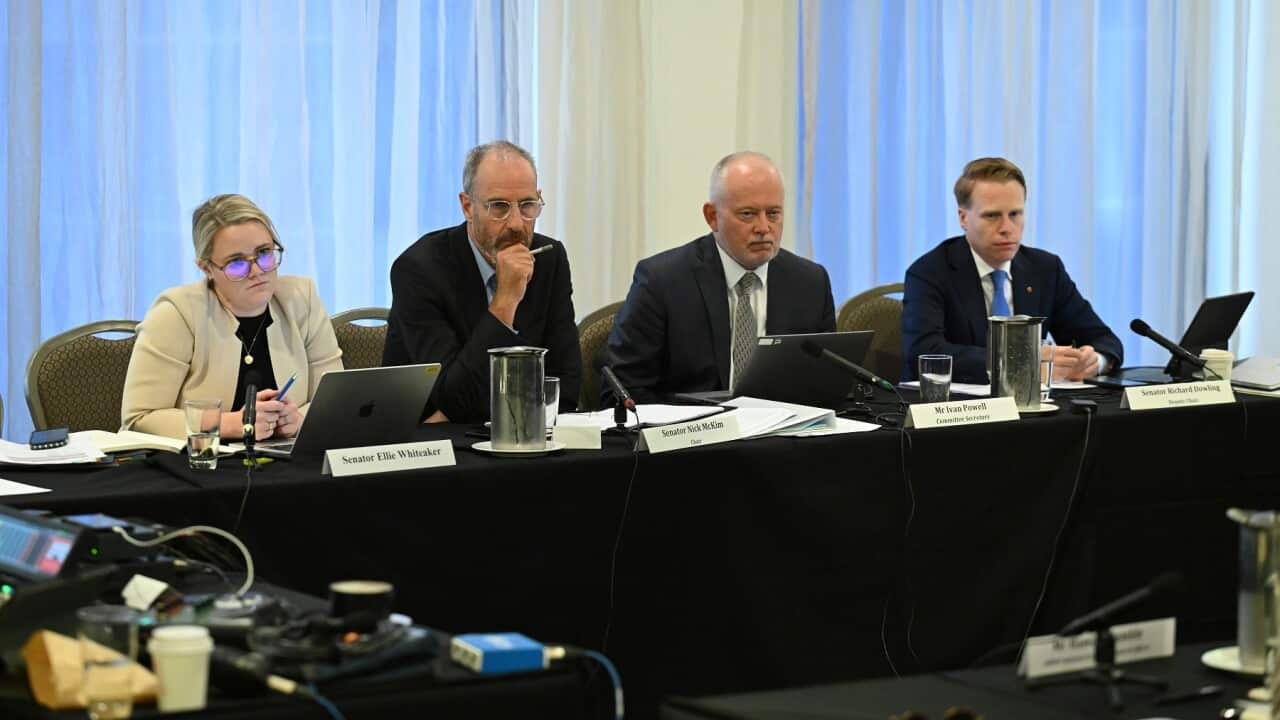Listen to Australian and world news, and follow trending topics with SBS News Podcasts.
TRANSCRIPT
In the mountains of Kunar Province, Afghanistan, the smell of death mingles with the sounds of scraping shovels, as rescuers and residents try desperately to find anyone still alive.
Villager Niamat Ullah lost multiple loved ones in Sunday's 6.0-magnitude quake.
"Last night, an earthquake happened in this area. I lost seven of my family's children including five girls and two boys. And three of my cousins were martyred too, and one uncle as well as some of my other relatives. In short, our village has 200 to 250 casualties."
Across the eastern provinces of Kunar and Nangarhar, homes made of mud bricks and wood have crumbled into ruins, entire villages destroyed.
At latest count, more than 800 people are dead, at least 2,500 injured.
And as aftershocks continue to rumble across scenes of destruction, desperate residents search for missing loved ones, with the death toll expected to rise.
Local resident Shahid Khan was buried under the rubble.
"We were under the soil. The Muslims came and rescued us. My wife, my son, my nephew, and my grandchildren were all buried under the destroyed house. This was God's test of us."
Military helicopters ferry out the injured, while residents help security forces and medics carry the wounded to ambulances.
Hospitals are already crammed, doctors and nurses working frantically amid the constant flow of stretchers.
This is a perilous rescue operation.
Rough mountainous areas are cut off from mobile reception, some impassable due to landslides.
Clouds above carry the ongoing threat of heavy rain, while animal carcasses risk contaminating water resources.
Residents beg the Taliban government for help, though its resources are already depleted.
Since the administration took control in 2021, they've grappled with a sharp drop in foreign aid that formed the bulk of their finances.
Afghanistan is one of the poorest nations in the world — and no stranger to powerful earthquakes with a magnitude over 7. Since 1900, the eastern part of the country has seen 12 of them.
And with effects of the climate change, they're expected to become even more frequent.
Sharafat Zaman, spokesman for the health ministry in Kabul, called for international aid to tackle the devastation.
"We urgently call on humanitarian organisations to step in and provide immediate support so the residents of the affected areas can be protected from further tragedies. Humanitarian organisations are also urged to assist in preventing the spread of communicable diseases."
Afghan Australian Shams Mamond was in Jalabad City in Eastern Afghanistan when the earthquake struck.
He travelled to one of the affected districts in neighbouring Kunar province, sharing his experiences with SBS Pashto.
“I was in Jalalabad [city] when the earthquake struck. The shaking was very strong and terrifying, it felt like the whole ground was moving beneath us. People were running out of their homes in panic and many buildings were damaged.”
Mr Mamond urged the Australian government to help.
“My humble request from the Australian government is to urgently send humanitarian aid — food, medicine, tents, and other emergency support — for the people of Kunar. At the same time, I hope Australia will also help with long-term recovery, so these families can rebuild their lives with dignity.”
Cries for help that, for many, will already be too late.













